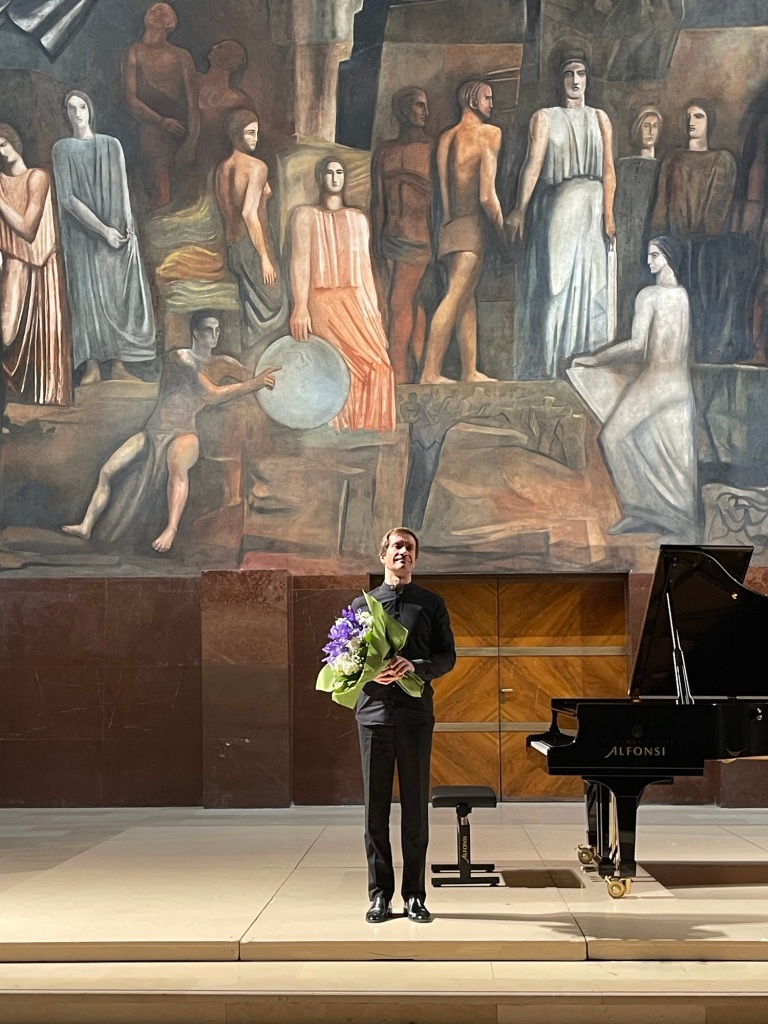Nikolai Lugansky in a concert dedicated to Maurizio Pollini who made his debut for the University in 1958 and today almost sixty years on we salute a legend.
And what better salute could there be than a recital from one of the finest pianists of our day.
One who with the same mastery,integrity and honesty presents the composer to us with a simplicity that is indeed humbling .
And humbled we were indeed as the last word went to Lugansky who dedicated a Bach Chorale; ‘Jesu Joy of man’s desiring’,to one of the greatest pianists of our age.
https://christopheraxworthymusiccommentary.com/2023/06/26/london-salutes-a-legend-maurizio-pollini-the-story-of-a-miracle-by-antonio-morabito/
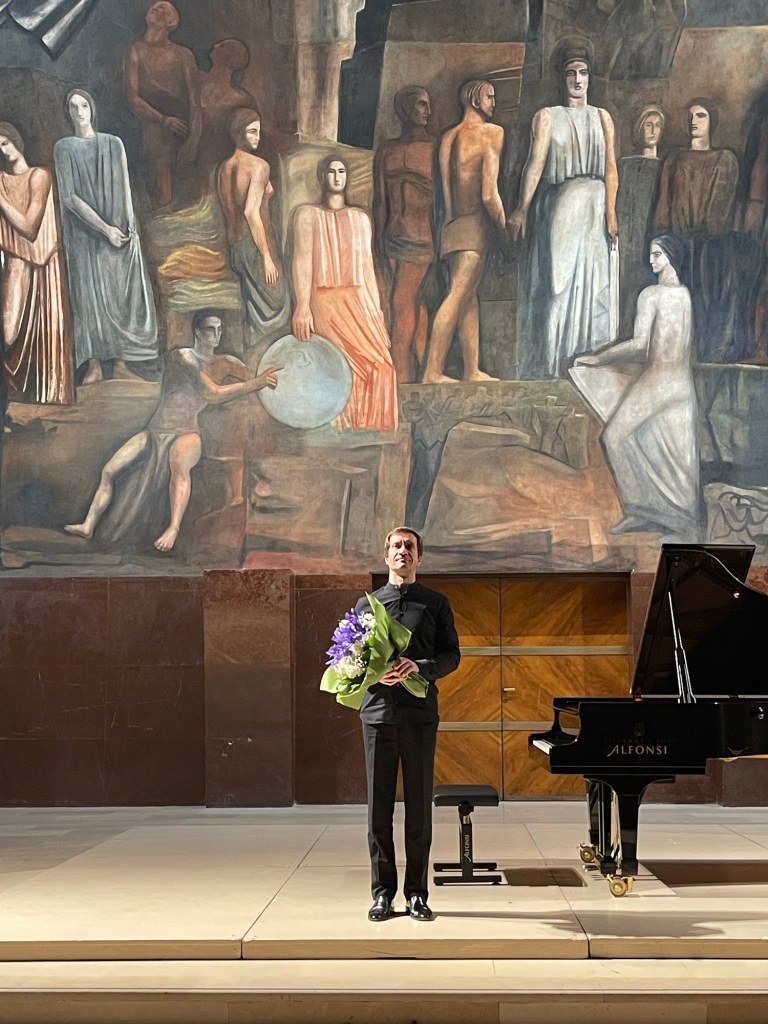
Nikolai Lugansky was making his debut for the University concert series and will long be remembered for the ravishing beauty of his playing.
Six Songs without Words by Mendelssohn opened the concert with playing of timeless beauty and a sense of balance that allowed the harmonies to mingle and colour the melodic line.There was a subtle freedom to his playing as he shaped Mendelssohn’s bitter sweet melodies with the same freedom as a bel canto singer.A mellifluous gentle unwinding of the melodic line in the ‘Duetto’ op 38 n.6 as the two voices intertwine, the beautifully robust tenor voice answered by the more gentle soprano.Joining together for a gloriously operatic reunion before disappearing into the heights with exquisite delicacy and refined good taste.The extraordinary control of song and accompaniment in the ‘May Song’ op 67 n.6 where the coquettish melody legatissimo floated so easily on the featherlight accompaniment with an extraordinary control of sound all played with the charm of another age of civilised respect and restrained passion.
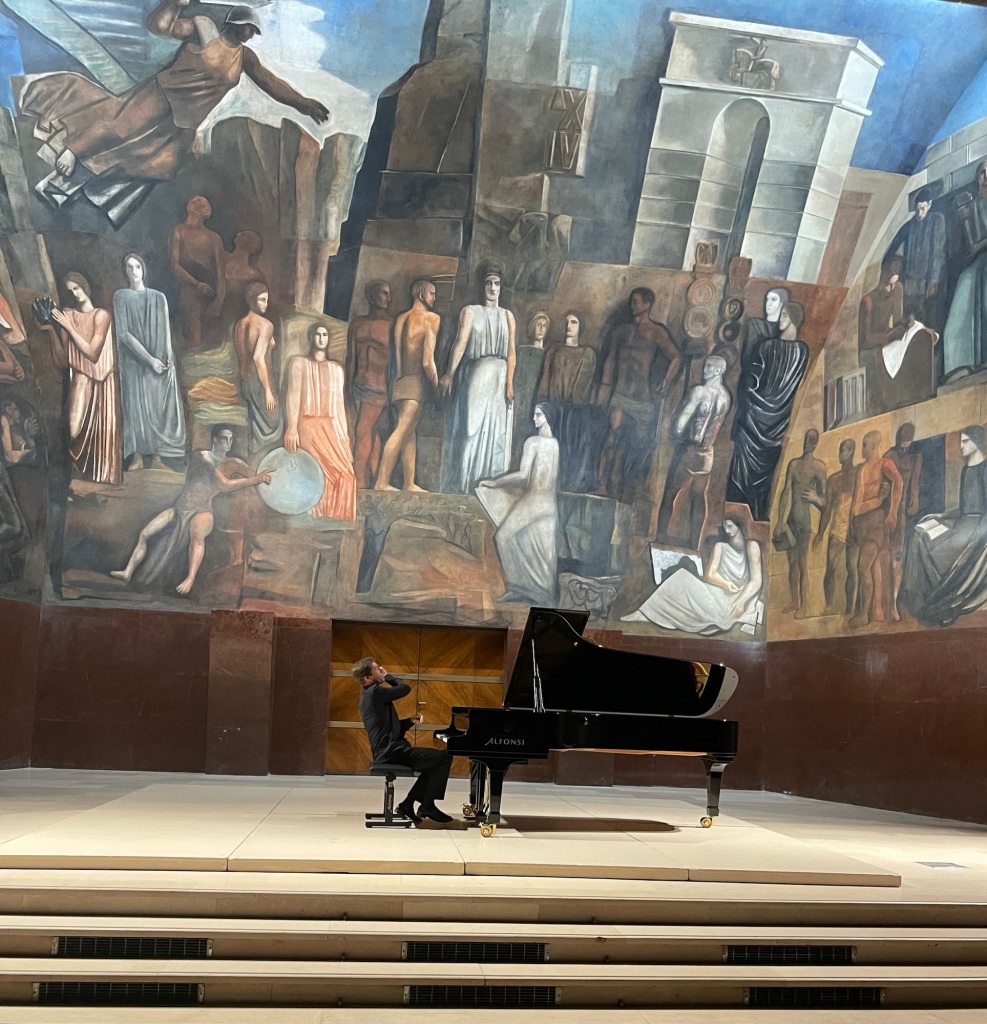
This was followed by the ‘Spinning song’ sometimes known as the ‘Bees Wedding’ which was played with etherial featherlight jeux perlé with the slight hesitation judged to absolute perfection before the plunge into the devouring melody.It can so easily be either exaggerated or even ignored but here Lugansky’s superb musicianship made everything he did speak as if there were infact words!The final two impish chords were placed with absolute disarming simplicity .The same aristocratic simplicity that I remember from Rubinstein who played this just once as an encore in London.There were marvels indeed in the F sharp minor op 67 n.2 where I have always had Horowitz or his pupil Turini in mind .Hovering above the featherlight accompaniment there floats a legato melody of such beguiling charm that can in lesser hands become rather banal and obvious.Lugansky played it with the same coquettish charm of a Schwarzkopf which was of seeming simplicity and the innocence of a child but that showed the art that conceals art of a truly great interpreter.
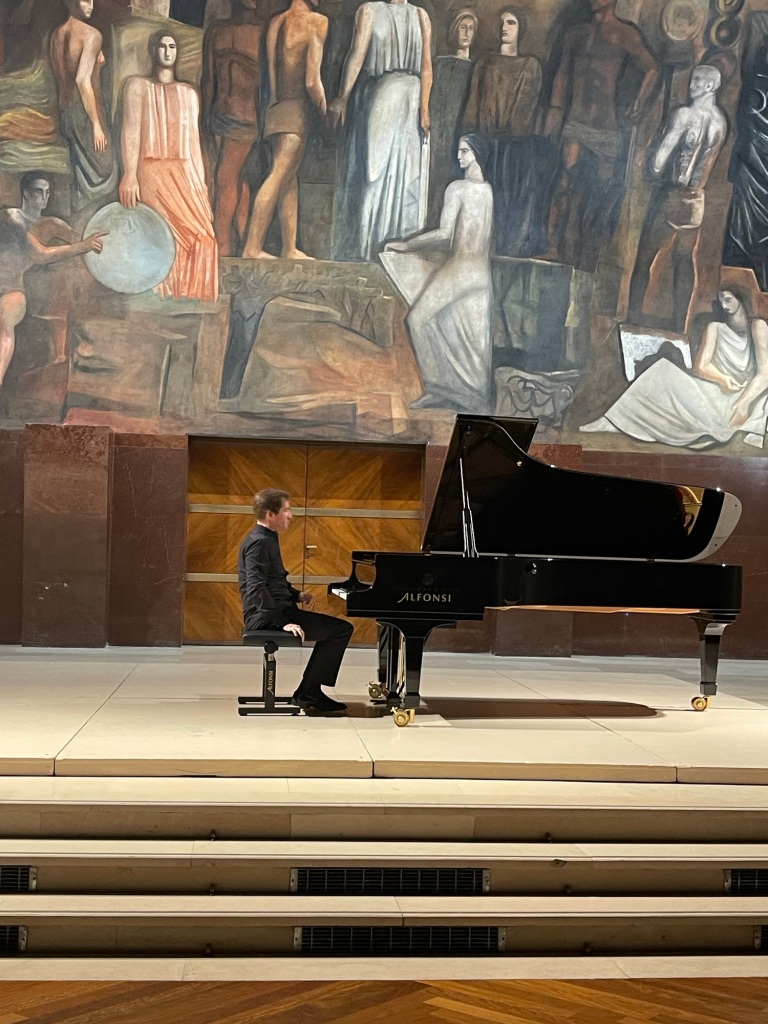
It is so easy to overstep that hairline boundary and fall into the quagmire of kitsch where Mendelssohn is so unjustly categorised as being dated and rather superficial.But like Schwarzkopf with Wolff Lugansky revealed with humility and great artistry the true genius of the still underrated Mendelssohn.Some might say that Mr Lugansky turned baubles into gems which would not be correct because Mr Lugansky showed us what neglected gems they truly are!Only Schubert could have written such a wondrous melody as in the last ‘Song’ in this all too short selection .The Andante sostenuto of op 85 n.4 was played with the same wondrous inflections of a Caballé because there was the ravishing sound that Lugansky brought to the melodic line.Also he allowed the harmonies to add colours from an accompaniment with sounds like the continual water of a brook in a tranquil pastoral landscape .The water continuing into the distance as we cherish the wonders that it shared with us on its unending journey into the distance.
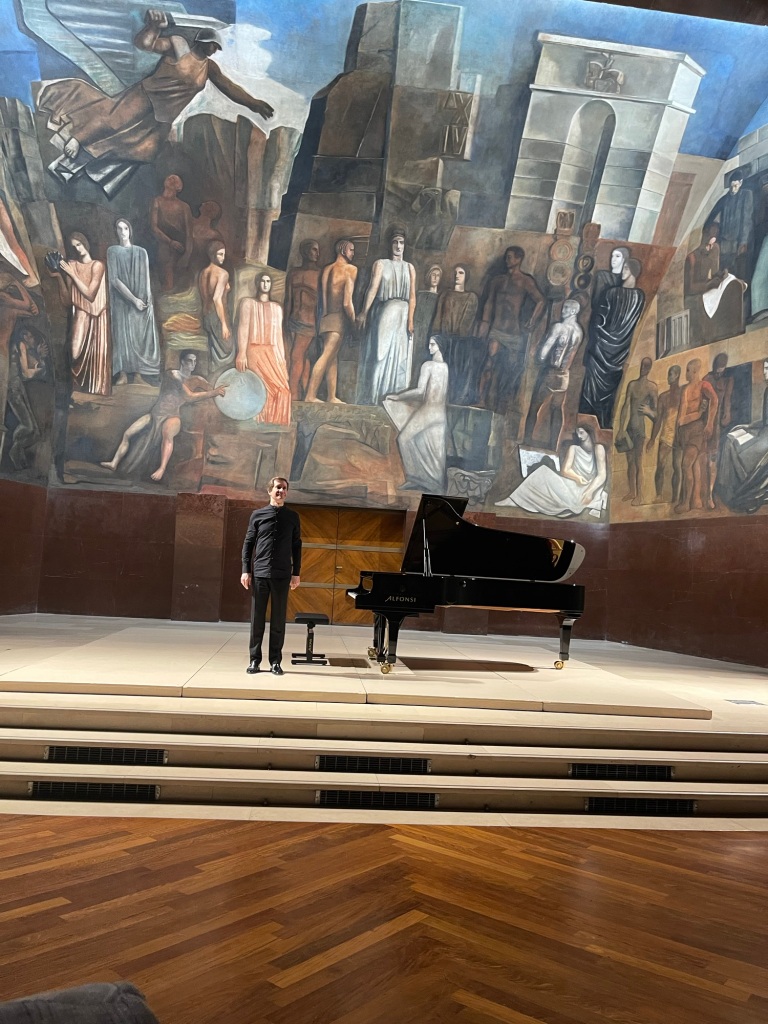
It was by coincidence that Lugansky should have had in his programme three works by Chopin that were amongst the most closely associated with Maurizio Pollini.The third and fourth Ballades and the magical Nocturne in D flat op 27 n. 2. I remember the intelligence and beauty mixed with power and mastery that Pollini would bring to the first Ballade that he often would play as an encore.Today were were treated to the beautifully whispered opening of the third Ballade, surely the most pastoral of all four and infact was the ideal companion to the ‘songs without words’.This was indeed a long song of ravishing beauty but also of an extraordinary architectural shape.Each episode grew out of the previous in a continual outpouring of streams of golden sounds.Wondrous liquid ornamental trills were like drops of water just allowed to glimmer in this pastoral landscape.Suddenly there appeared as if by magic the crystalline delicacy of a lilting bell on the horizon out of which the melodic line was allowed to evolve.Arabesques that were played with ease as they were allowed to unfold like a flower in blossom with the music moving inexorably forward on a wave of subdued emotion.There was an etherial lightness to the left hand jeux perlé which was just accompanying the melodic line as it built to a passionate climax.
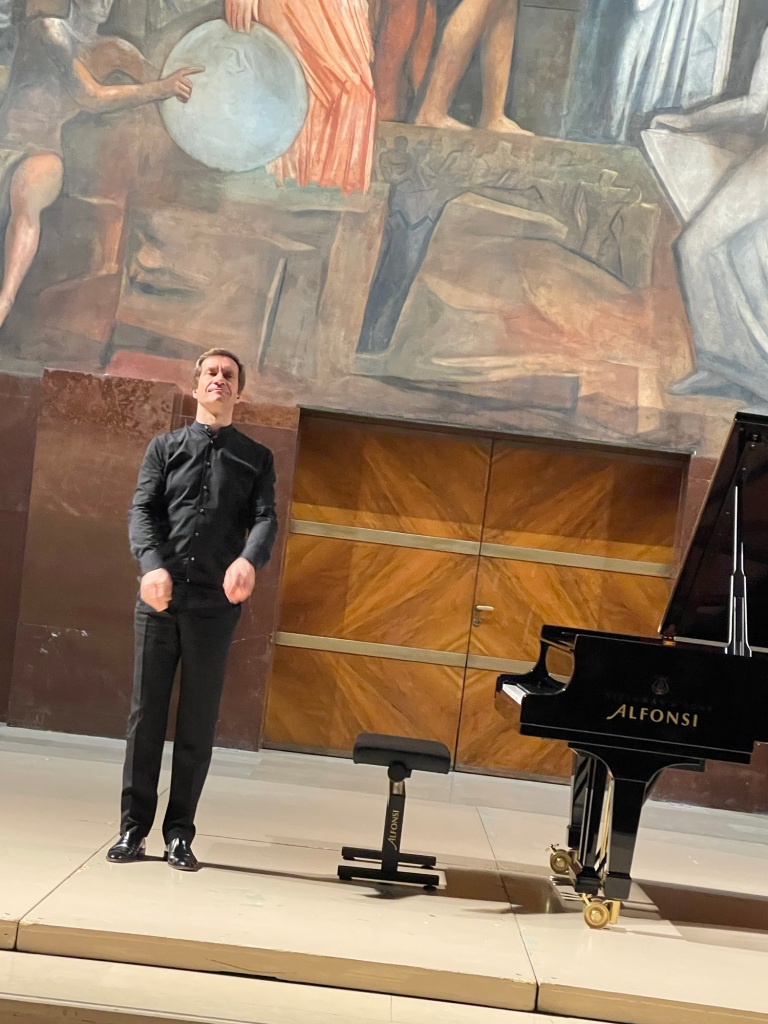
There was controlled passion and masterly musicianship as this was only the start of the build up to the final outpouring of nobility where even in this red hot final outpouring there was a sense of balance that allowed this great song to open up with a masterly control of sound like the opening up of the diaphragm of a great singer.This like the Barcarolle was Chopin’s song without words where Lugansky’s musicianship intelligence and artistry combined to exult the Genius of Chopin.Even the final plunge from the top to the bottom of the keyboard was played with one stroke of the arm like a great painter with his brush.(I have never noticed before that Lugansky has an unusual way of using his arm from the elbow which of course has no relevance but it had never truck me before.An artist must use any physical means to produce the sounds that he is searching for. Richter would throw his whole body on to the keyboard like a wild animal and Gilels would throw his arms into the air with great aristocratic sweeping gestures .They are all a means to the end which is the sound they have in their heads,hearts and souls!
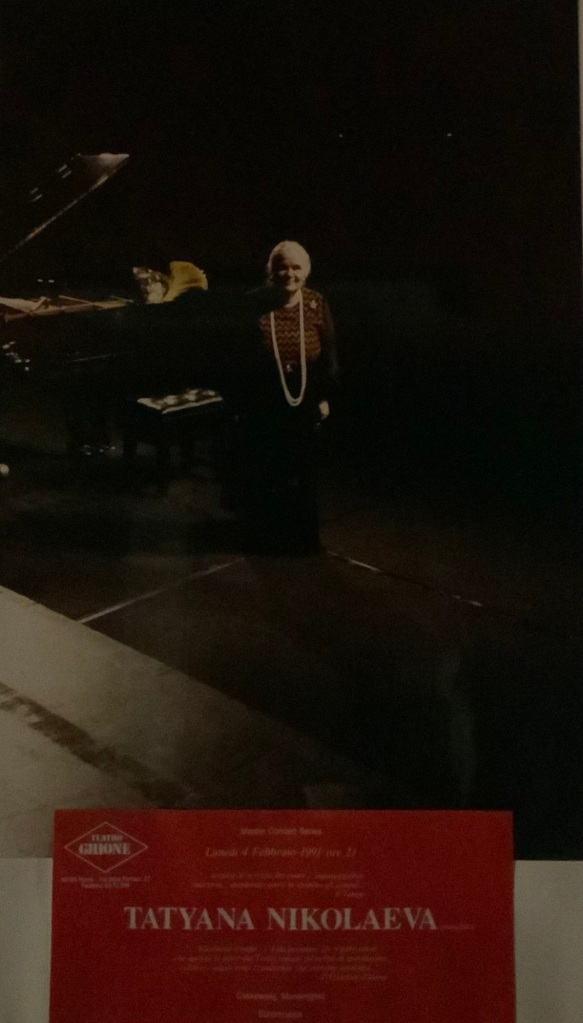
And Lugansky certainly has a soul the same as his teacher,our beloved Tatyana Nikolaeva.Intelligence ,simplicity and aristocratic nobility always at the service of the wishes of the composer .
The D flat Nocturne op 27 n. 2 was played with poignant veiled beauty.There was the same aristocratic nobility that was of Pollini or Rubinstein with the beautiful sense of question and answer in the build up of intensity.The release of restrained tension was with a bouquet of refined ornamentation that was allowed to flower in a shower of golden notes.There was magic in the air with the tender coda of ever more beseeching delicacy and the disarming simplicity of the final two chords.
Out of this magic world emerged the Andante con moto of the Fourth Ballade.This with the Liszt sonata and Schumann Fantasie are the Pinnacles of the Romantic piano repertoire and are works of absolute originality and genius.Lugansky played the opening like an apparition or mirage that seemed to have no beginning or ending it was simply a cloud to take us into a magic land of wondrous beauty.There were barely suggested left hand octaves marked pianissimo and legato that took us into the series of variations that would lead to the magical return of the opening .Perlemuter wrote in my score at this point Cortot’s poignant words :’avec un sentiment de regret’ .A golden web of sounds brings us to the contrapuntal opening theme played with the beauty that Chopin’s counterpoints ( Bach was Chopin’s God) obviously imply as this is Bach seen through ‘rose coloured spectacles’.The fluidity that Lugansky brought to these final pages was breathtaking with the left hand scales just like wafts of colour on which the melodic line could float with ever more passionate abandon.The tumultuous climax was played with enviable precision and vehemence but even more remarkable was the gentle glow he immediately brought to the five pianissimo chords that prepare us for the virtuosistic coda.An extraordinary mastery of technical brilliance and musicianship with a masterly control brought this first half of the recital to a magnificent finish.
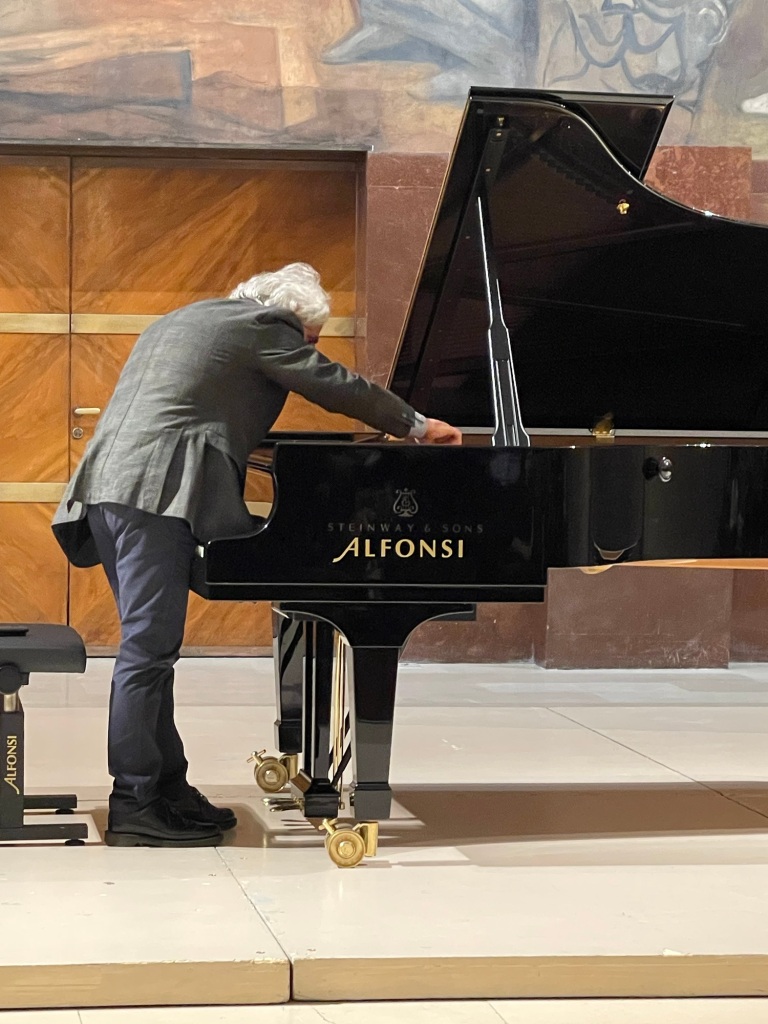
The second half was dedicated to Rachmaninov a composer I can never recall Pollini playing.
This was Rachmaninov played with the mastery and musicianship that so astonished us in the west when Richter first appeared on the scene with his recording of the second concerto and six preludes.Lugansky is presenting programmes of the complete works of Rachmaninov for the 150th anniversary year and today played five Etudes Tableaux from op 33 and 39 and six preludes from op 23 and one from op 32 as an encore.
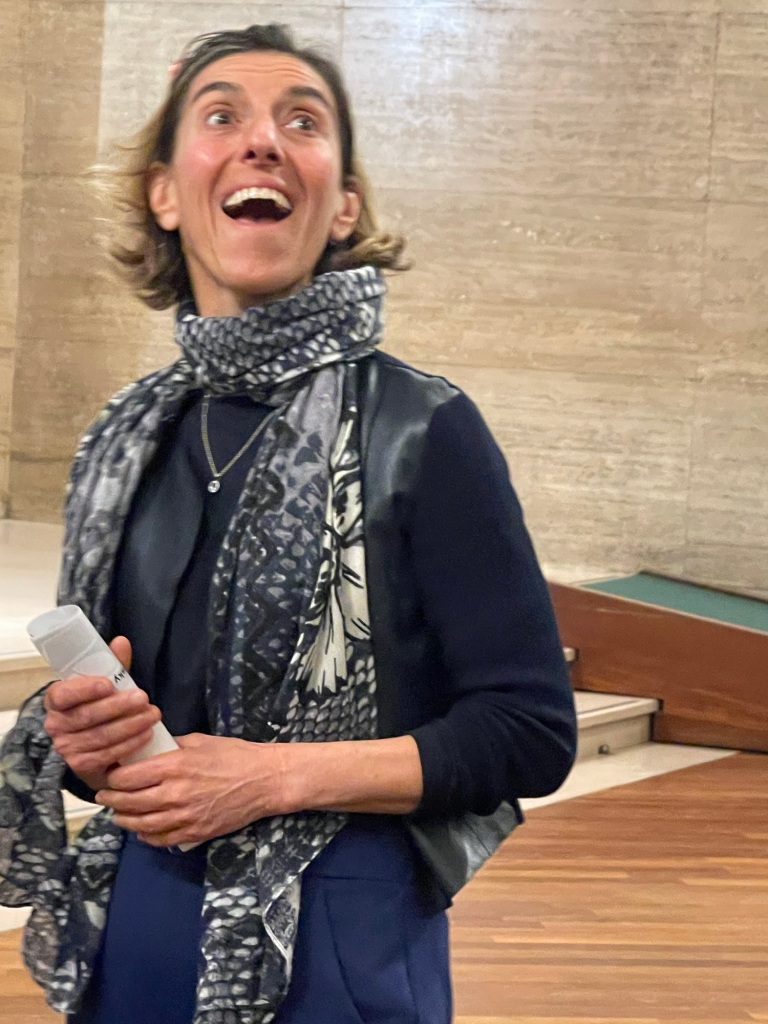
This was masterly playing with a technical prowess that went unnoticed as it was the streams of golden sumptuous sounds that poured from the piano that kept us enthralled and entranced and not a little astonished.The quite extraordinary tone poems that are each of the Etude Tableaux where technical difficulties were just absorbed into a musical panorama of extraordinary expressiveness.I have never heard the infamous op 33 n. 5 played with such beguiling beauty where the enormous technical challenges were just inexistant in such masterly hands.There were the enormous sumptuous sounds of op 39 . N. 9 and the disarming simplicity of op 33 n. 2 .The preludes too were a similar selection to those that I heard as a child on the now historic first recording of Richter.The spiders web of sounds of the 7th on which the noblest of melodies resound unperturbed by such busy fingers. There was the same disarming simplicity and veiled passion of the D major n. 4 and the tumultuous driving brilliance of the G minor n. 5.
An encore was the beautiful G sharp minor op 32 n,12 ending with the same impish charm as in op 23 n. 5.
The greatest performance however, Lugansky reserved for Pollini in a personal homage of the Bach chorale that he announced at the end of this extraordinary tribute from one great pianist to another.
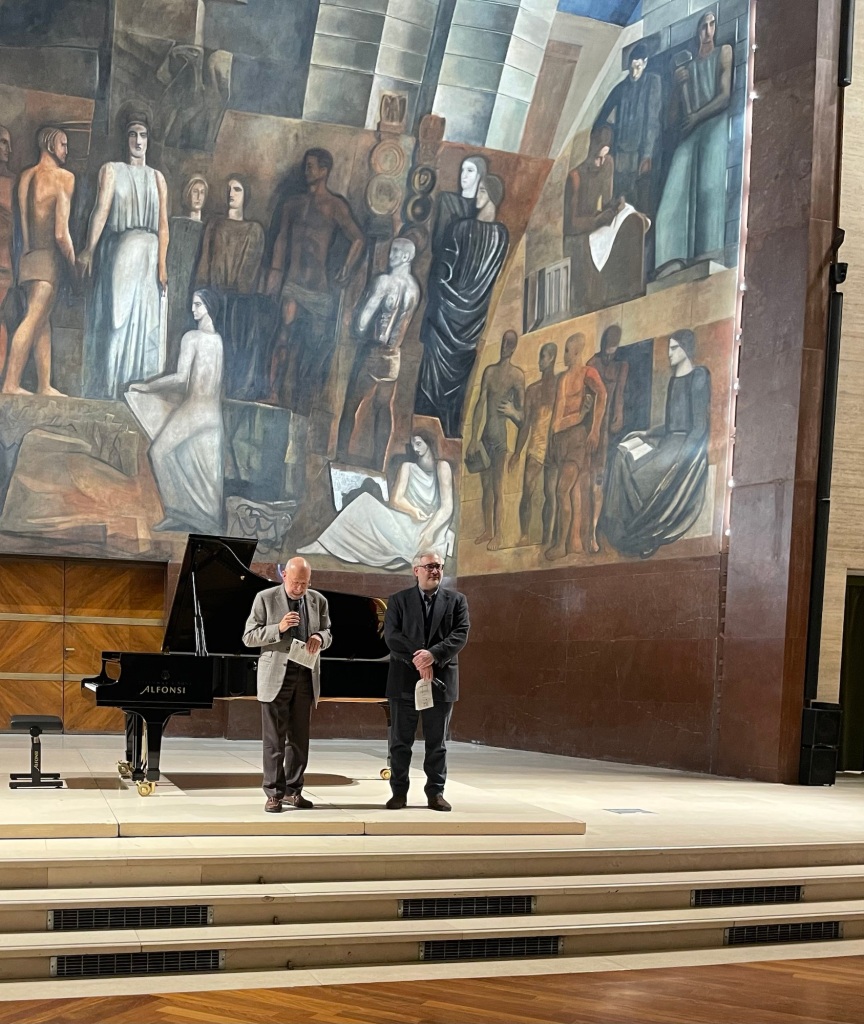
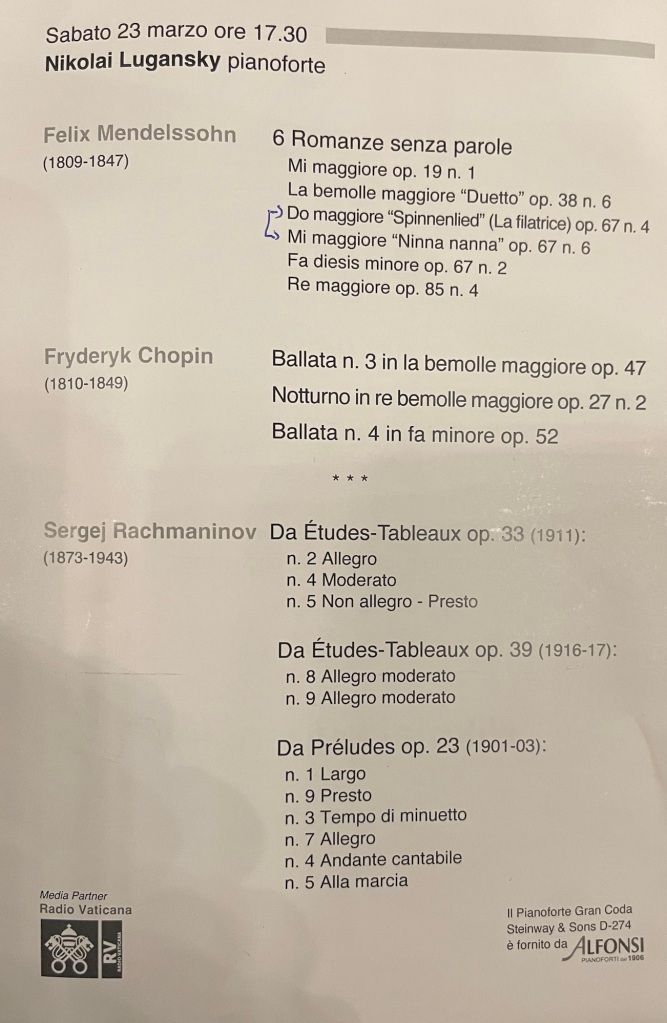
https://christopheraxworthymusiccommentary.com/2018/04/13/russia-comes-to-rome/
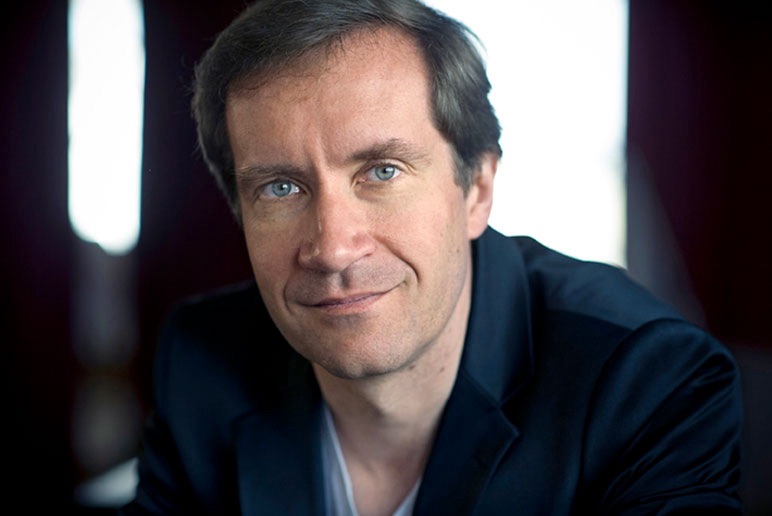
Nikolai Lugansky was born in 1972 in Moscow. He was studying at Central Music School at Moscow Conservatory under Tatiana Kestner and later on with such professors as Tatiana Nikolayeva and Sergey Dorensky. He continued his postgraduate education under Dorensky supervision. The initial stage of his career as the solo pianist brought him the title of the laureate of the I All-Union competition of young musicians in Tbilisi (1988), VIII International competition of J.S. Bach in Leipzig (1988), All-Union competition of S.V. Rachmaninoff in Moscow (1990), International summer academy Mozarteum (Salzburg, 1992) and the win at the Tchaikovsky Competition in 1994.In 2013, Nikolay Lugansky was awarded the title of the “Honored artist of the Russian Federation”. Today on the count of the soloist of the Moscow Philharmonic and honored member the Russian Academy of arts there are many brilliant artistic achievements. They include collaboration with the best symphonic orchestras of Russia, France, Germany, Japan, Netherlands, and the USA and of many other countries under the direction of well-known conductors as Evgeny Svetlanov, Yuri Temirkanov, Gennady Rozhdestvensky, Valery Gergiev, Vladimir Fedoseyev, Mikhail Pletnev, Vladimir Spivakov, Vladimir Jurowski, Yuri Simonov, Alexander Vedernikov, Kirill Petrenko, Kurt Masur, Charles Dutoit, Leonard Slatkin, Kent Nagano, Marik Janowski, Gianandrea Noseda and Sakari Oramo. Besides Lugansky`s partners in chamber performances were pianists Vadim Rudenko, Yuja Wang, violinists Vadim Repin, Leonidas Kavakos, Isabelle Faust, Sergey Krylov, cellists Aleksander Knyazev, Aleksander Rudin, Misha Maisky, clarinetist Evgeny Petrov and soprano Anna Netrebko.
The discography of Nikolai Lugansky includes records with such labels as “Melody”, Erato Disques, Warner Classics, Deutsche Grammophon, Naïve, Harmonia Mundi and other companies. His albums have been awarded many international prizes, including the Award of Terence Judd, Diapason d’Or de l’Annee (three times), ECHO Klassik (three times), Choc du Monde de la Music, Preis der Deutschen Schallplattenkritik and BBC Music Magazine Award.
Since 1998, the pianist has been giving lectures as the professor at the Moscow Conservatory at the department of special piano. Besides, Nikolay Lugansky still gives hundreds of concerts all over the world annually.
